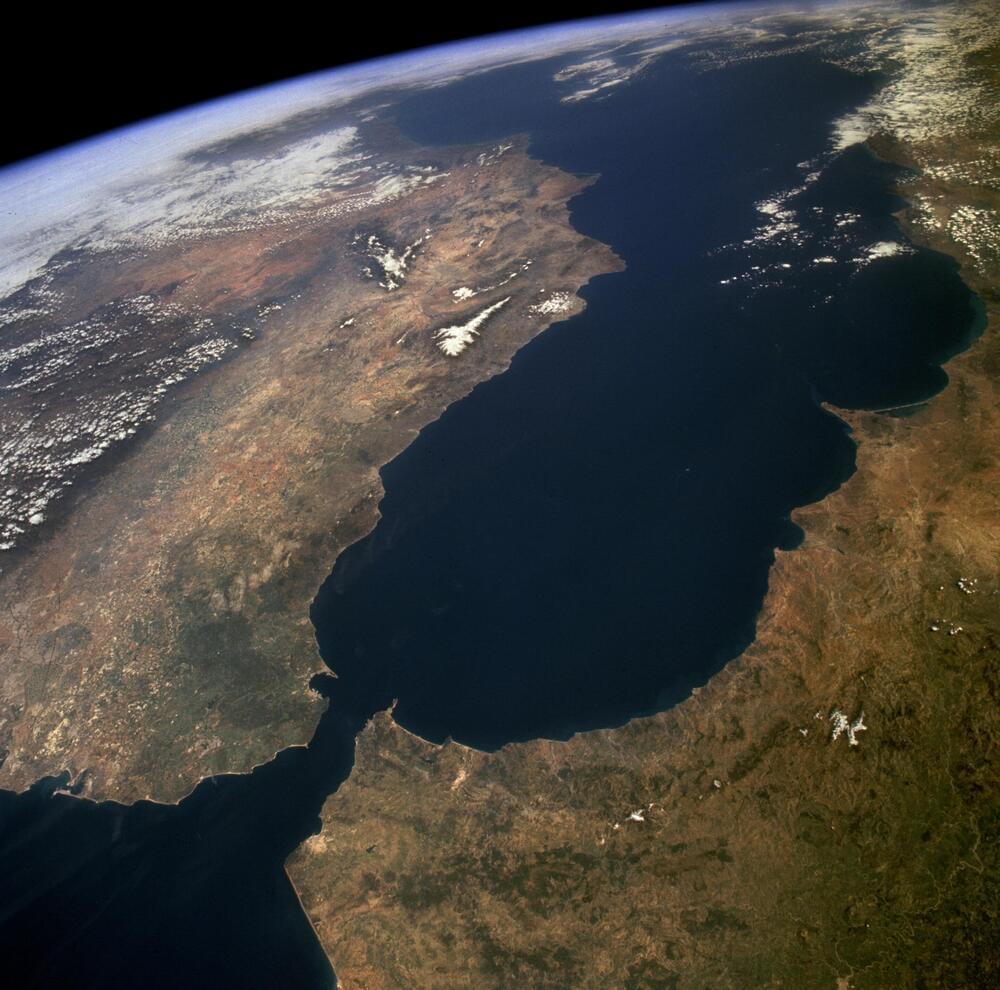A new study, resorting to computational models, predicts that a subduction zone currently below the Gibraltar Strait will propagate further inside the Atlantic and contribute to forming an Atlantic subduction system—an Atlantic ring of fire. This will happen ‘soon’ in geological terms—in approximately 20 million years.
Oceans seem eternal to our lifespan, but they are not here for long: they are born, grow, and one day close. This process, which takes a few hundred million years, is called Wilson Cycle. The Atlantic, for example, was born when Pangea broke up around 180 million years ago and will one day close. And the Mediterranean is what remains from a big ocean—the Tethys– that once existed between Africa and Eurasia.
For an ocean like the Atlantic to stop growing and start closing, new subduction zones—places where one tectonic plate sinks below another—have to form. But subduction zones are hard to form, as they require plates to break and bend, and plates are very strong. A way out of this “paradox” is to consider that subduction zones can migrate from a dying ocean in which they already exist—the Mediterranean—into pristine oceans—such as the Atlantic. This process was dubbed subduction invasion.
